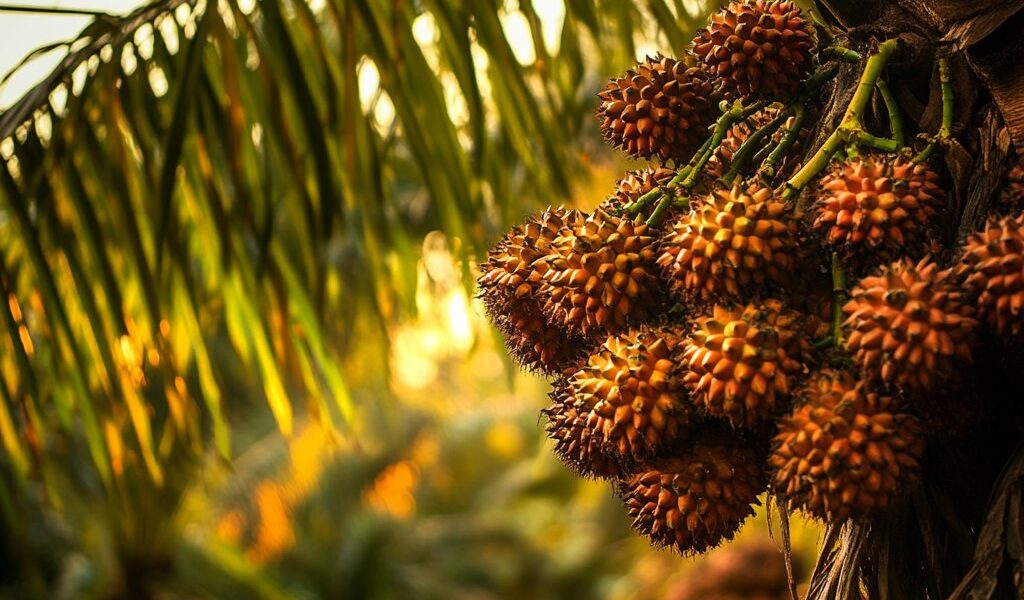
The benefits of choosing sustainably produced palm oil
In recent years, the significance of sustainable palm oil production has become increasingly evident. This shift towards sustainability is crucial for addressing the numerous environmental, social, and economic issues associated with traditional palm oil cultivation practices. Sustainable palm oil production ensures that the oil is harvested in a manner that does not contribute to deforestation, respects human rights, and supports local communities. By adhering to stringent environmental and social standards, sustainable palm oil can help mitigate climate change, preserve biodiversity, and improve livelihoods in palm oil-producing regions.
One of the primary advantages of sustainable palm oil is its high yield compared to other vegetable oils. The oil palm tree is incredibly efficient, producing more oil per hectare than any other crop. This means that less land is required to produce the same amount of oil, reducing the pressure on forests and other natural habitats. Additionally, sustainable palm oil production practices often include measures to protect and restore ecosystems, further enhancing their environmental benefits.
Furthermore, sustainable palm oil is essential for meeting global food demands without compromising the health of our planet. As the world’s population continues to grow, the demand for vegetable oils is expected to increase. Sustainable palm oil offers a viable solution to this challenge by providing a high-yield, environmentally friendly alternative to other vegetable oils. By choosing products made with sustainable palm oil, consumers can play a crucial role in supporting this transition and promoting a more sustainable future.
How the spoc initiative educates and informs
The Sustainable Palm Oil Choice (SPOC) initiative plays a vital role in raising awareness about the benefits of sustainably produced palm oil. Through educational campaigns and facts about palm oil, SPOC helps consumers, businesses, and policymakers understand the importance of sustainable palm oil and encourages them to make responsible choices. By providing clear and accessible information, SPOC empowers individuals to make informed decisions that support sustainable practices.
One of the key aspects of the SPOC initiative is highlighting the numerous benefits of sustainable palm oil production. This includes not only the environmental advantages but also the positive social and economic impacts. By showcasing real-world examples and success stories, SPOC demonstrates how sustainable palm oil can contribute to healthier ecosystems, improved livelihoods, and stronger communities. This comprehensive approach helps to build a broader understanding of the value of sustainable palm oil and motivates stakeholders to take action.
Moreover, SPOC emphasizes the importance of certification schemes such as the Roundtable on Sustainable Palm Oil (RSPO). These certification programs set rigorous standards for sustainable palm oil production and ensure that certified producers adhere to best practices. By promoting these certifications, SPOC helps consumers identify products that meet high sustainability standards and encourages businesses to adopt certified sustainable practices. This collective effort drives positive change within the industry and helps create a more sustainable future for all.
Highlighting the benefits of sustainable practices
Sustainable palm oil production offers numerous benefits that extend beyond environmental conservation. One of the most significant advantages is its potential to improve the livelihoods of local communities in palm oil-producing regions. By adhering to fair labor practices and respecting land rights, sustainable palm oil production can provide stable incomes and better working conditions for smallholder farmers and plantation workers. This not only enhances their quality of life but also fosters economic development in these areas.
Another key benefit of sustainable palm oil production is its ability to support biodiversity conservation. Traditional palm oil cultivation often involves clearing large areas of tropical rainforest, leading to habitat loss for many endangered species. In contrast, sustainable practices prioritize zero deforestation and work towards protecting existing forests and restoring degraded lands. This helps preserve vital ecosystems and provides a refuge for wildlife, contributing to greater biodiversity and ecological resilience.
Additionally, sustainable palm oil production can help mitigate climate change by reducing greenhouse gas emissions associated with deforestation and land conversion. By implementing practices such as maintaining forest cover, protecting peatlands, and utilizing renewable energy sources, sustainable palm oil producers can significantly lower their carbon footprint. This contributes to global efforts to combat climate change and promotes a more resilient agricultural system that can adapt to changing environmental conditions.
Environmental wins of sustainable palm oil production
Sustainable palm oil production offers several environmental benefits that contribute to the preservation of our planet’s natural resources. One of the most notable advantages is its potential to reduce deforestation rates. Unsustainable palm oil cultivation has been a major driver of deforestation in tropical regions, leading to significant biodiversity loss and increased carbon emissions. By adopting zero deforestation policies and implementing responsible land-use practices, sustainable palm oil production helps protect vital forest ecosystems.
Another critical environmental benefit of sustainable palm oil production is its support for soil health and water conservation. Traditional agricultural practices often lead to soil degradation and water pollution due to excessive use of chemical fertilizers and pesticides. In contrast, sustainable palm oil production emphasizes integrated pest management, organic fertilizers, and agroecological approaches that enhance soil fertility and reduce water contamination. These practices help maintain healthy soils and clean water sources, which are essential for long-term agricultural productivity.
Moreover, sustainable palm oil production promotes the conservation of peatlands—carbon-rich wetlands that play a crucial role in regulating global climate. Draining and converting peatlands for agriculture releases large amounts of stored carbon into the atmosphere, contributing to climate change. Sustainable practices prioritize the protection of these critical ecosystems by avoiding peatland conversion and implementing measures to restore degraded peatlands. This helps sequester carbon and mitigate climate change impacts while preserving valuable habitats for wildlife.
Social benefits for local communities
Sustainable palm oil production brings significant social benefits to local communities in producing regions. One of the most important advantages is the improvement in working conditions for plantation workers and smallholder farmers. Sustainable practices ensure fair wages, safe working environments, and access to essential services such as healthcare and education. This not only enhances workers’ quality of life but also promotes social equity and reduces poverty in these areas.
Another key social benefit is the protection of land rights for indigenous peoples and local communities. Unsustainable palm oil cultivation often leads to land conflicts and displacement of local populations due to land grabbing and inadequate compensation. In contrast, sustainable practices prioritize respect for land tenure rights and involve local communities in decision-making processes. This helps prevent conflicts, ensures equitable benefit-sharing, and fosters strong relationships between producers and local stakeholders.
Furthermore, sustainable palm oil production supports community development through various initiatives such as capacity-building programs, infrastructure projects, and social investments. By providing training opportunities, improving access to markets, and supporting local enterprises, sustainable producers contribute to economic growth and resilience in rural areas. These efforts help build stronger communities that are better equipped to face challenges such as climate change, market fluctuations, and socio-economic disparities.
Advocating for a greener future with sustainable palm oil
The transition towards sustainably produced palm oil is essential for creating a greener future that balances environmental conservation with socio-economic development. Consumers play a crucial role in this process by choosing products made with certified sustainable palm oil. By supporting brands that prioritize sustainability, consumers can drive demand for responsibly produced palm oil and encourage more companies to adopt ethical practices.
Industry transformation is also vital for achieving widespread adoption of sustainable palm oil practices. Businesses across the supply chain must commit to sourcing certified sustainable palm oil, implementing traceability systems, and adhering to high environmental and social standards. Collaboration among stakeholders—including producers, processors, retailers, NGOs, policymakers—is essential for driving systemic change within the industry.
The SPOC initiative exemplifies how collective action can promote sustainability by raising awareness about the benefits of sustainably produced palm oil and encouraging responsible consumer choices. Through education campaigns, certifications like RSPO (Roundtable on Sustainable Palm Oil), traceability measures such as satellite monitoring systems ensure compliance with sustainability commitments while protecting critical ecosystems from deforestation impacts associated with unsustainable agricultural expansion globally




